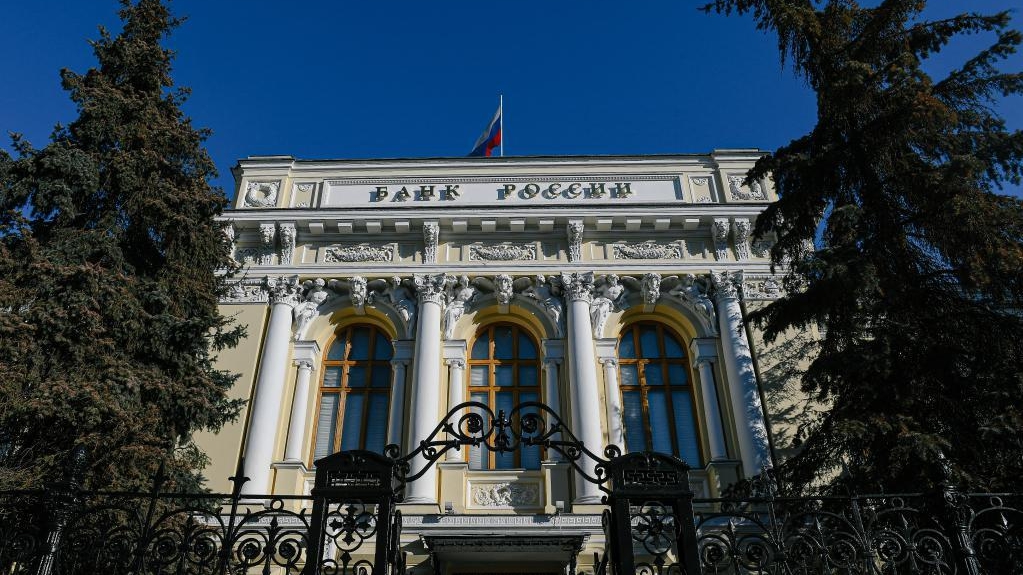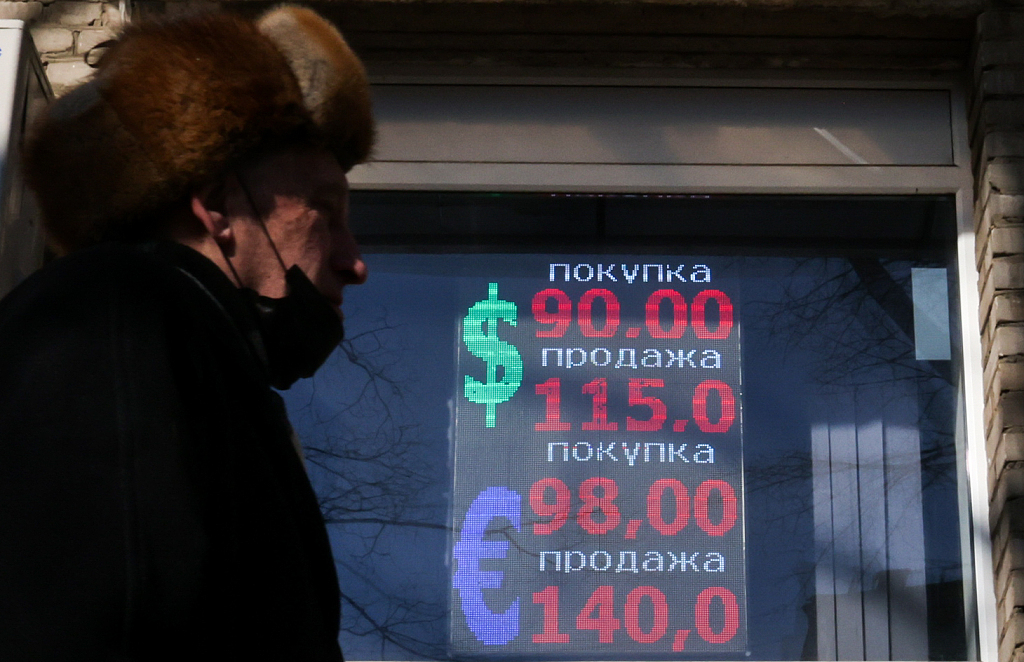
The main building of Bank of Russia in Moscow, Russia, February 25, 2022. /Xinhua
The main building of Bank of Russia in Moscow, Russia, February 25, 2022. /Xinhua
Editor's note: Bradley Blankenship is a Prague-based American journalist, political analyst and freelance reporter. The article reflects the author's opinions and not necessarily the views of CGTN.
The conflict in Ukraine continues to be the central focus of global media discussions, which is understandable because of the huge tragedy that it is. Last week, I was on RT's CrossTalk program to discuss another unfortunate dimension of this conflict: the "great separation," as the world moves to isolate Russia. A few things have since stuck out to me on this particular topic that show how dangerous attempts to decouple the global economy really are for everyone.
I think that this is of particular concern to China right now. According to a recent column on Global Times, titled "Chinese people keep ear to the ground during Russia-U.S. showdown," "It needs to be pointed out that many Chinese people have viewed Russia as a sand table. Everything that happens is regarded as having a special relation to China."
The article added that the Chinese society learned a lesson from the disintegration of the Soviet Union in 1991, and the "Chinese people are watching and waiting" to see the outcome of this showdown between Russia and the West.
The article was clearly saying that China should really be paying attention to how Russia is being isolated in the international system. Because Western countries, particularly the United States, continue to make threats of de-coupling, this situation could be seen as a sort of canary in the coal mine for China if things deteriorated between Beijing and the West for whatever reason.
This is a fair point – but what I would add to this, from my own perspective as an American, is that the situation can also serve as a similar warning for Western countries too. We are already seeing, for example, that the isolation of Russia on the global stage, particularly in trade and finance, is compounding serious economic problems in the West too.
Given the fact that China is the second-largest economy by nominal GDP in the world, you can bet that decoupling from China would be even more detrimental for the West – and it speaks to why this should not happen at all costs, and also why it shouldn't be happening with Russia.
As much of the world is grappling with crippling inflation not seen at these levels for decades, it is widely understood that Russia's exclusion from global trade will make this far worse. For one, Russia is one of the world's largest energy producers – and this is a particularly bad situation for Europe, with some countries in the EU being completely dependent on Russia for their energy needs. The sanctions on Russia are already leading to more inflation, essentially making a terrible situation much worse.

A digital board shows Russian ruble exchange rates against the euro and the U.S. dollar outside a currency exchange office in Moscow, Russia, February 28, 2022. /CFP
A digital board shows Russian ruble exchange rates against the euro and the U.S. dollar outside a currency exchange office in Moscow, Russia, February 28, 2022. /CFP
This won't just mean higher prices for fuel but higher prices for pretty much everything in the consumer economy. Likewise, Russia (along with Belarus) is one of the world's largest producers of fertilizer, and the new sanctions will have a direct impact on food prices – in addition to the rising fuel prices and already-existing trade restrictions in place that were squeezing the industry.
A lot of people have been speculating on both of these points, but here's something that hit home for me particularly hard. Just a few days ago, I saw a report that the Teachers' Retirement System of the State of Kentucky, which is my home state in the U.S., saw about $13 million wiped off its position in Sberbank of Russia. According to the Nasdaq, it is the second-largest shareholder in the bank, the largest in Russia.
Here's why this is important: The globalization of finance has led us to a point where individuals and retirement networks are so diversified in their portfolios that they can have holdings wiped with the flick of a pen if they happen to have positions in a country targeted by U.S. sanctions.
Kentucky's teacher retirement/pension system is one of the biggest hot-button political issues in the state – and it's sure to be huge again considering the fact that this +95 percent loss no doubt means that a ton of people just lost their retirement. There are certainly an untold amount of individuals and similar institutions that have been negatively impacted by this, considering the fact that Russia is a massive country with an important financial market.
Though none of these people – Americans at the pump, grocery shoppers or school teachers – are involved in this conflict or even anywhere geographically near it, these examples demonstrate that attempts to weaponize globalization through decoupling inevitably backfire for populations back home.
The economy is simply so interdependent now that outright decoupling is not a prudent strategy to punish countries for their government's actions unless one is willing to deal with serious repercussions at home. And you can be sure that what's happening with Russia is only the beginning of what could happen in the future if decoupling becomes the norm.
(If you want to contribute and have specific expertise, please contact us at opinions@cgtn.com. Follow @thouse_opinions on Twitter to discover the latest commentaries on CGTN Opinion Section.)

